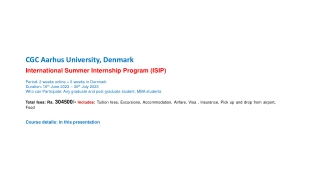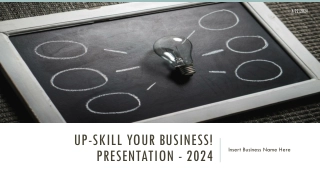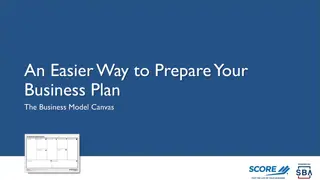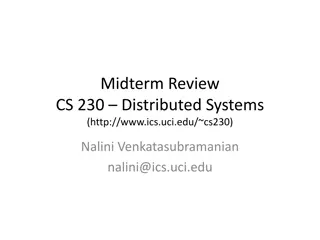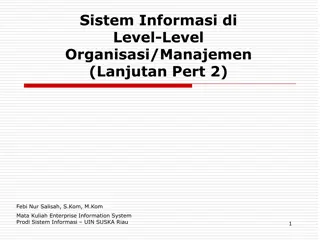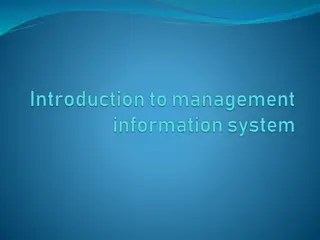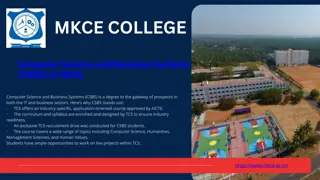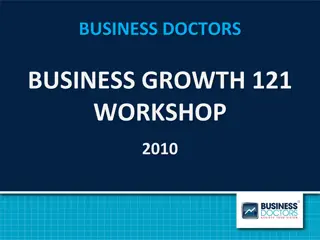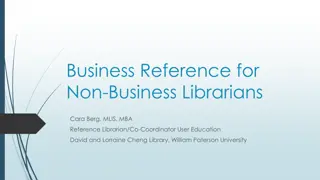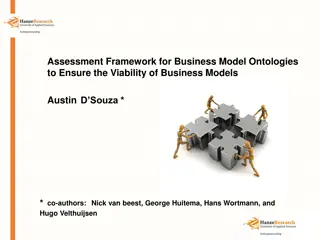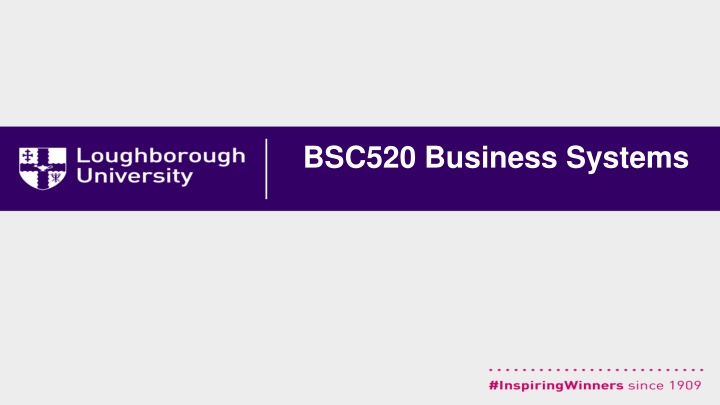
Digital Technologies Impact on Organizations and Business Benefits
Explore the impact of digital technologies on organizations, focusing on Industry 4.0 benefits, strategic planning, system development, Big Data, and IT security. Engage in lectures, independent study, and assessments to understand the organizational impacts of new technologies.
Download Presentation

Please find below an Image/Link to download the presentation.
The content on the website is provided AS IS for your information and personal use only. It may not be sold, licensed, or shared on other websites without obtaining consent from the author. If you encounter any issues during the download, it is possible that the publisher has removed the file from their server.
You are allowed to download the files provided on this website for personal or commercial use, subject to the condition that they are used lawfully. All files are the property of their respective owners.
The content on the website is provided AS IS for your information and personal use only. It may not be sold, licensed, or shared on other websites without obtaining consent from the author.
E N D
Presentation Transcript
About This Module This module explains how digital technologies can impact organisations and deliver business benefits for Industry 4.0 It focuses on the latest technology issues and trends, strategic planning, successful systems development, Big Data exploitation, IT security It considers the business and management issues associated with the use of a range of new digital technologies e.g. AI, Robotics, Business Platforms, Big Data, Robotic Process Automation
Teaching and Learning Direct contact with the lecturer is through two-hour lectures each week The lectures will use a range of short industry case studies, videos and in-class activities for discussion and feedback As this is a social sciences module students are expected to carry out independent study to supplement the lectures Students are also expected to actively engage with activities and join in discussions in the lectures
Assessment and Feedback Assessment: One two-hour written examination paper (100%) taken at the end of the Semester. Revision sessions are held throughout the module to support students that may have less experience with essay based exams Example exam questions are provided at the end of each lecture to illustrate how questions may be asked In-class feedback is provided throughout the module and through in-class activities and in the revision sessions Generic feedback is provided on learn after the exam results are published
Wider skills and knowledge development https://upload.wikimedia.org/wikipedia/commons/thumb/4/4d/Amazon_Go_in_Seattle%2C_December_2016.jpg/1280px-Amazon_Go_in_Seattle%2C_December_2016.jpg You will be able to assess and explain the likely impacts of IT advances on the behaviour and performance of organisations You will be able to analyse the relationship between new digital technologies and business value You will be able to understand and evaluate the organisational impacts of information systems
Reading material The reading material will draw on a range of case studies, academic articles and industry reports Examples include: McAfee, A., Brynjolfsson, E., Davenport, T. H., Patil, D. J., & Barton, D. (2012). Big Data. The management revolution. Harvard Bus Rev, 90 (10), 61-67. available at: https://hbr.org/2012/10/big- data-the-management-revolution [Accessed 3 Oct, 2019]. Coombs, C, Hislop, D, Taneva, S, Barnard, S (2020) The strategic impacts of intelligent automation for knowledge and service work: An interdisciplinary review, The Journal of Strategic Information Systems, 101600, ISSN: 0963-8687. DOI: 10.1016/j.jsis.2020.101600 Mark de Reuver, Carsten S rensen, Rahul C. Basole (2018) The digital platform: a research agenda, Journal of Information Technology (2018) 33, 124 135. DWIVEDI, Y.K. ... et al, 2015. Research on information systems failures and successes: status update and future directions. Information Systems Frontiers, 17 (1), pp. 143-157
Why choose this module? This module will give you a non-technical, applied perspective on how the latest technology advances (e.g. AI, Big Data, Digital Business Platforms etc) are likely to change your future working life and the skills you will need to be successful. We can future proof our employability so long as we focus on our creativity, social skills and be willing to continually develop and enhance our higher order knowledge and skills Erik Brynjolfsson and Andrew McAfee (MIT) For further information contact: Crispin Coombs c.r.coombs@lboro.ac.uk

